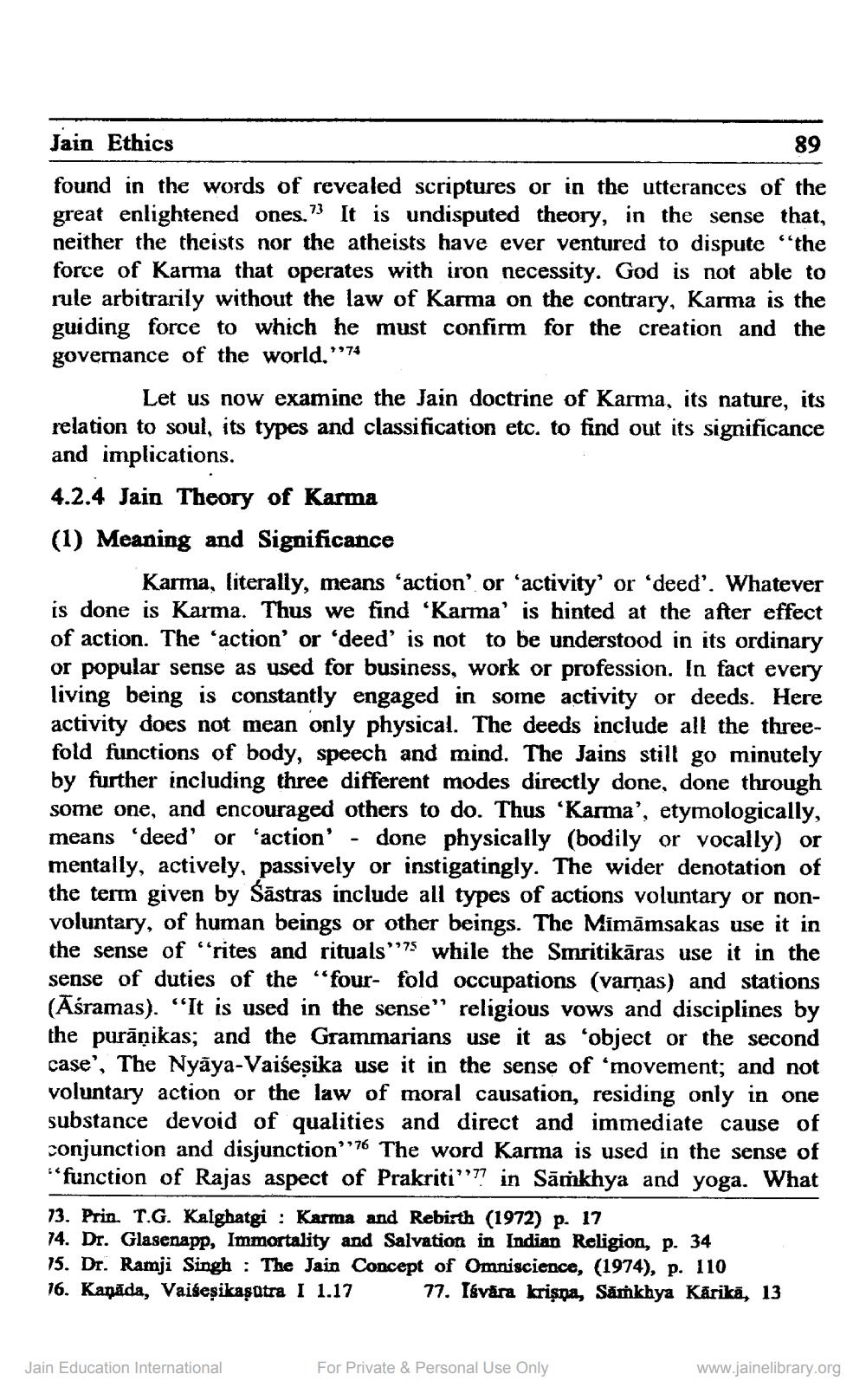________________
89
Jain Ethics found in the words of revealed scriptures or in the utterances of the great enlightened ones. It is undisputed theory, in the sense that, neither the theists nor the atheists have ever ventured to dispute "the force of Karma that operates with iron necessity. God is not able to rule arbitrarily without the law of Karma on the contrary, Karma is the guiding force to which he must confirm for the creation and the governance of the world."74
Let us now examine the Jain doctrine of Karma, its nature, its relation to soul, its types and classification etc. to find out its significance and implications. 4.2.4 Jain Theory of Karma (1) Meaning and Significance
Karma, literally, means “action' or 'activity' or 'deed'. Whatever is done is Karma. Thus we find 'Karma' is hinted at the after effect of action. The 'action' or 'deed' is not to be understood in its ordinary or popular sense as used for business, work or profession. In fact every living being is constantly engaged in some activity or deeds. Here activity does not mean only physical. The deeds include all the threefold functions of body, speech and mind. The Jains still go minutely by further including three different modes directly done, done through some one, and encouraged others to do. Thus ‘Karma', etymologically, means 'deed' or 'action' - done physically (bodily or vocally) or mentally, actively, passively or instigatingly. The wider denotation of the term given by Sāstras include all types of actions voluntary or nonvoluntary, of human beings or other beings. The Mimāmsakas use it in the sense of “rites and rituals"? while the Smritikāras use it in the sense of duties of the “four- fold occupations (varņas) and stations (Aśramas). “It is used in the sense" religious vows and disciplines by the purāņikas; and the Grammarians use it as 'object or the second case', The Nyāya-Vaiseșika use it in the sense of 'movement; and not voluntary action or the law of moral causation, residing only in one substance devoid of qualities and direct and immediate cause of conjunction and disjunction"76 The word Karma is used in the sense of "function of Rajas aspect of Prakriti''?? in Sāṁkhya and yoga. What 13. Prin. T.G. Kalghatgi : Karma and Rebirth (1972) p. 17 74. Dr. Glasenapp, Immortality and Salvation in Indian Religion, p. 34 15. Dr. Ramji Singh: The Jain Concept of Omniscience, (1974), p. 110 16. Kaņāda, Vaiseşikasatra I 1.17 77. Távåra krisna, Sāṁkhya Kärikā, 13
Jain Education International
For Private & Personal Use Only
www.jainelibrary.org




